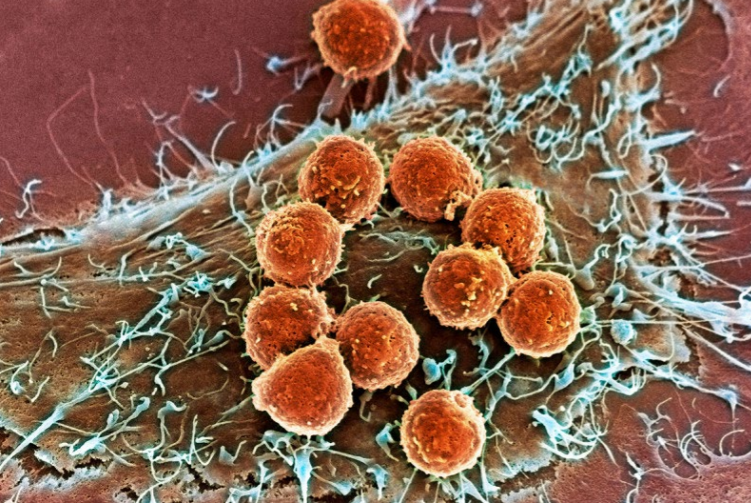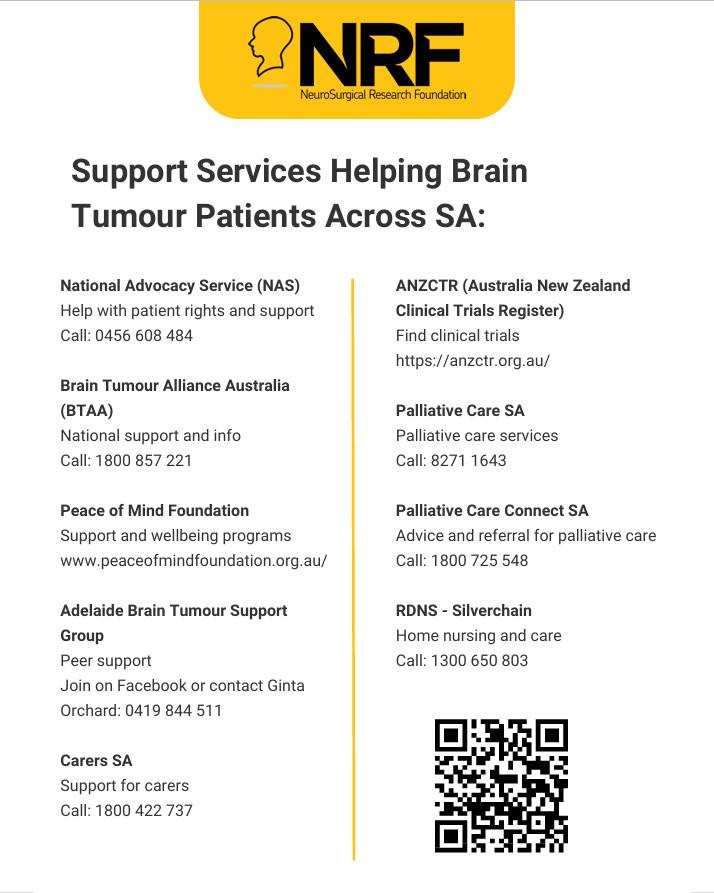Grey May 2025 Brain Tumour Research Update
A Hopeful Future: Brain Tumour Research Update & Lab Tour

More than 80 patients, families, researchers and supporters came together at the Centre for Cancer Biology in May for a powerful update on the latest brain tumour research in South Australia.
The event, hosted by the NeuroSurgical Research Foundation (NRF) and Brain Tumour Research SA, gave attendees the chance to hear directly from researchers driving new discoveries — and to tour the labs where the work is happening. Guests also enjoyed lunch and open conversation with researchers and clinicians, with time to ask questions and connect with the growing brain tumour support community.
New Pathways, New Possibilities
Professor Stuart Pitson opened the session with an overview of South Australia’s expanding research capacity — and why this matters.
"I would say we have equivalent to the best models available in the world here, and getting better all the time, and I know we have the most collaborative and best coordinated brain cancer research in the country. So we're trying to use the network and the resources that we've developed, to progress towards clinical trials and better outcome for patients."
NRF SA Brain Tumour Research Overview
Testing New Drugs Using Patient Tumour Models
Dr Helen Palenthorpe presented on the team’s advanced use of tumour organoids — small, lab-grown 3D models of brain tumours derived from real patient tissue —having developed a faster, improved protocol to crete them.
“Another advantage of this method is that we can use and culture of variety of brain cancer types into these organoids. So this allows for extensive biobank collections, and it also facilitates patient specific preclinical drug testing that's targeted toward different brain tumor subgroups."
The team is focusing on NX drug candidates that have already passed safety testing in other cancers, allowing potential brain tumour trials to begin sooner. Organoid models are also being shared with collaborators interstate and overseas, accelerating global progress.
CAR-T Cell Therapy: A New Hope in Clinical Trials
Dr Lisa Ebert shared exciting early data from South Australia’s first clinical trials of CAR-T cell immunotherapy for brain tumours — a highly personalised treatment using a patient’s own modified immune cells.
“We have actually seen two treated patients whose tumors have shrunk as well, although only transiently. In a clinical trial, we always start at a very low dose, because at this very early stage, our main goal is to show safety. What we hope is that as we start giving a higher dose, we might start seeing even better results. ”
The trials are targeting a molecule called HER2, using either direct brain infusion or intravenous delivery. Preclinical research is now underway on next-generation approaches to improve tumour targeting and persistence.
“None of this would be possible without the funding support we’ve received. Many organisations help to fund our broader research program but it is the NRF and the James and Diana Ramsay Foundation that are funding the clinical trials, so thank you."
T cells swarming over and attacking a cancer cell
Support Beyond Treatment
Ginta Orchard, NRF Executive Officer and facilitator of the Adelaide Brain Tumour Support Group, closed the session by highlighting vital services now available to patients and families.
“There are support organisations out there now that just didn’t exist 10 or 12 years ago,” she said.
- SA Brain Cancer Support Nurse
-
NDIS and Centrelink assistance through the National Advocacy Service and Peace of Mind Foundation
-
Financial and travel advice via Brain Tumour Alliance Australia
-
Specialist counselling and peer support, including Adelaide’s monthly brain tumour support group
-
Palliative care services that help patients stay at home longer — not just at end of life
-
Carer registration advice, to unlock additional government and respite support
“We’re here to support patients from all hospitals. If you’re not sure where to start, reach out — we can help connect you.”
The NRF sincerely thanks all the speakers for sharing their expertise, and every patient, supporter and family member who attended. Your presence and ongoing support are helping to drive forward the next generation of treatments for brain tumours — right here in South Australia.









